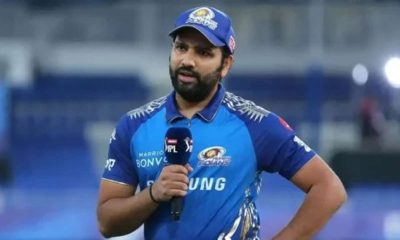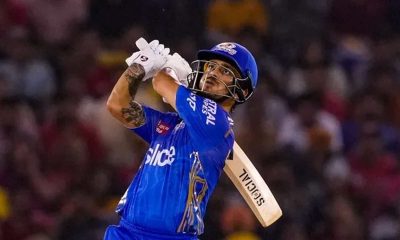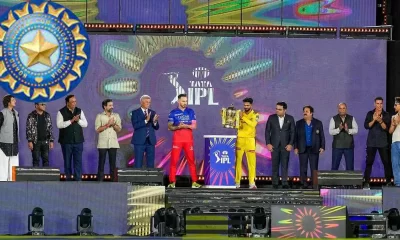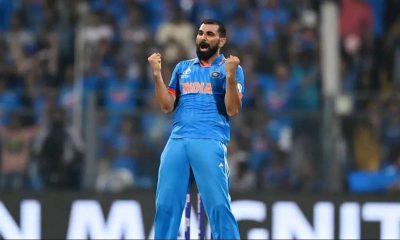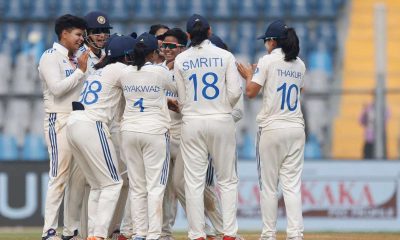India News
It is sports, you bet! Law Commission recommends legalising betting in sports
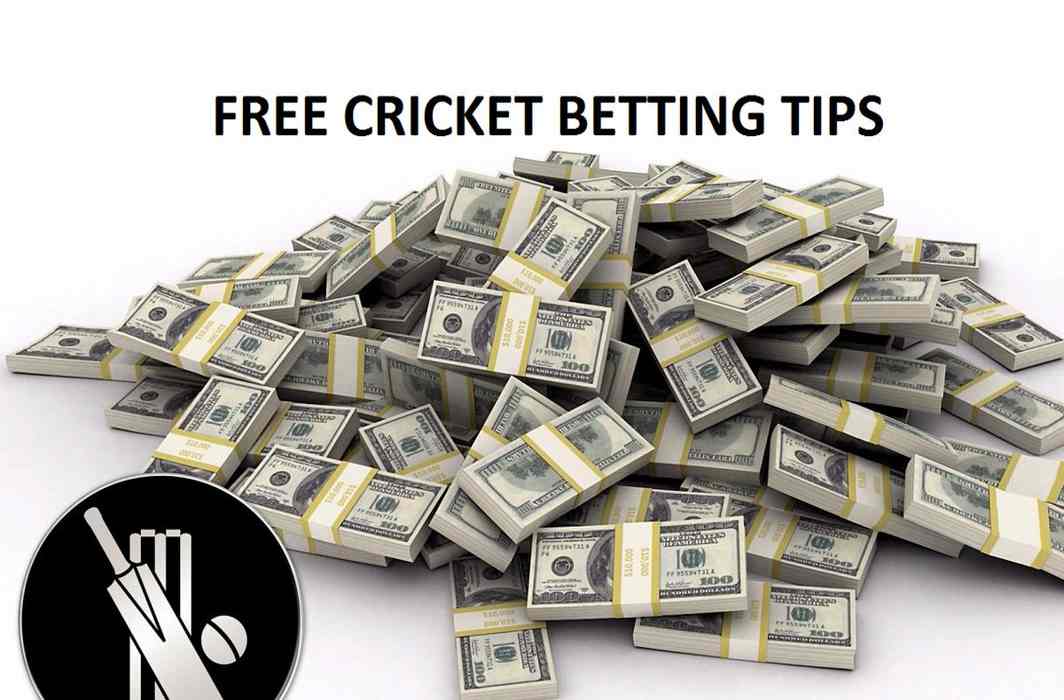
It’s a piece of news that will be welcomed by many whose interest in sports lies in the money to be made, rather than the side that wins or loses: The Law Commission of India has recommended legalisation of sports betting and gambling activities and regulating them, stating that a complete ban has proved to be “counter-productive” and has only resulted in a hike of “black money generation and circulation”.
It said that since it is impossible to stop illegal gambling, the only viable option left is to “regulate” gambling in sports and it be allowed as regulated activity taxable under the direct and indirect tax regimes and used as a source for attracting foreign direct investment (FDI).
The commission recommended “cashless” gambling in sports and taxing the earnings as a means to increase revenue and deal a blow to unlawful gambling. The money generated can be used for public welfare activities, it said.
The commission’s report, “Legal Framework: Gambling and Sports Betting including Cricket in India”, recommends a number of changes in the law for regulating betting and generating tax revenues from it.
The Law Commission report was prepared by a panel headed by Chairman Justice BS Chauhan after the Supreme Court ordered it to study the possibility while hearing a case between the Board of Control for Cricket in India (BCCI) and Cricket Association of Bihar & Ors.
The commission had taken opinion from students, experts and public in general before coming to the conclusion that regulation was needed more than prohibition. It has also proposed that the income earned from these activities should be made taxable. If the proposal goes through, it could lead to a windfall for the government.
“In the light of the fact that the existing black-market operations relating to these activities are a major source of influx of black money in the economy, regulation rather than complete prohibition the logical step to be taken,” reads the report.
While pondering over the question, the commission looked at examples from Mahabharata as well.
“The argument that had gambling been regulated in the Mahabharata period, Yudhishtir could not have put his brothers and wife as stakes, perhaps Mahabharata could not have been there, is full of substance,” noted the commission.
At present, betting is legal only on horse racing, and it is taxed at 28 per cent under GST. The commission recommended that like the exemption for horse-racing as a game of skill, “other skill-centric games may also be exempted from the blanket prohibition on gambling”.
The commission has also recommended amending the laws regulating forex and India’s FDI policy to allow investments in the casino and online gaming industry.
It also proposed strong regulations and laid down several checks and balances to avoid misuse if betting is indeed legalised.
It has stated in its report that such activities should be offered only by operators from India possessing valid licences granted by a game licensing authority.
The commission recommended a classification of ‘proper gambling’ and ‘small gambling.’ ‘Proper gambling’ would be for the rich who play for high stakes, while ‘small gambling’ would be for the low income groups, it said.
Restrictions on amount should be prescribed while using electronic money facilities like credit cards, debit cards, and net banking. Gambling websites should not solicit pornography, it said.
For those who would participate in gambling and betting, there should be a cap on the number of transactions that they can indulge in monthly/yearly etc.
It has also proposed that all betting and gambling activities should be linked to the operator’s and participant or player’s Aadhaar Card/PAN Card, to ensure “enhanced transparency and state supervision”.
Also, transactions need to be cashless, “with penal provisions for cash transactions”, it said.
Those who receive “subsidies or do not pay taxes” have been excluded from participating in such betting and gambling.
Making betting and gambling legal has been debated for long. Estimates about the size of the gambling market in India vary, with a 2010 KPMG report suggesting that it could be $60 billion, but more recent studies peg the value to be much higher, said a News18 report.
According to Doha-based International Centre for Sport Security, the illegal betting market in India is worth $150 billion, or roughly Rs 9.6 lakh crore, the News18 report said. Most of it is via local bookmakers and unregulated offshore websites.
The government could earn tens of thousands of crores as tax revenue by legalising sports betting. Additionally, if online gambling and casinos are also permitted, the estimated tax revenue would be much higher.
In addition to revenue generation, a legal and regulated gambling sector will also help in creating large-scale employment opportunities.
Parliament may also enact a model law for regulating gambling that may be adopted by the states or in the alternative, Parliament may legislate in exercise of its powers under Articles 249 or 252 of the Constitution. In case legislation is made under Article 252, states other than the consenting states will be free to adopt the same, it states.
The commission said it feels that allowing FDI in the industry would bring substantial amounts of investment to those states that decide to permit casinos, propelling the growth of the tourism and hospitality industries, while also enabling such states to generate higher revenue and employment opportunities.
Justice BS Chauhan stated that with time law changes and thus the need is for regulation rather than blanket prohibition. Quoting Justice DP Madon, the commission stated “as the society changes, the law cannot remain immutable” and that “the law exists to serve the needs of the society which is governed by it.”
The primary law on which states have framed their gambling legislation is an archaic, British-era law called the Public Gambling Act, 1867. Ironically, while India follows a British-era prohibitionist statute, the UK legalised and regulated various forms of gambling and betting many decades ago.
The commission report referred to epic Mahabharat to justify its call for regulation of gambling.
“There is merit in the argument that, had gambling been regulated at the time of the Mahabharat, Yudhishtir could not have staked his wife and brothers in a gamble,” the report signed by Justice Chauhan and five other commission members observed.
The commission said that even as Indian society had traditionally frowned upon gambling, the argument made for ‘revenue over morality’ lacked merit. It reasoned that online gambling and betting have acquired a global presence.
“Such activities, if properly regulated would ensure transparency in the market, as also strike at the underworld’s control over the illegal and unregulated gambling industry. Additionally, revenue so generated by regulating and taxing betting and gambling may become a good source of revenue, which in turn, could be used for public welfare,” the commission report said.
2024 Lok Sabha Elections
Lok Sabha election 2024: Nearly 50% voter turnout recorded in second phase till 3 pm
The constituencies going to polls today include all 20 Lok Sabha seats in Kerala, 14 in Karnataka, 13 in Rajasthan, and others spread across different states.
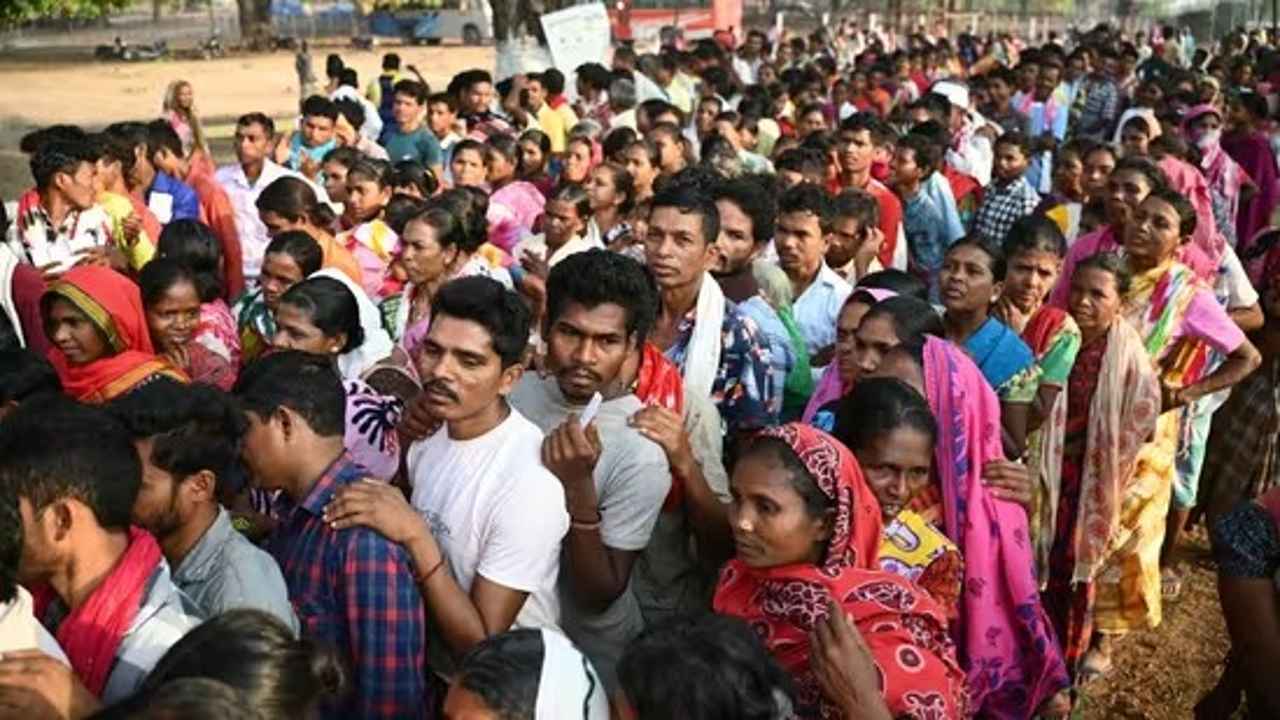
In the second phase of Lok Sabha elections 2024, over 50% of voters were registered in 13 states and the UTs till 3 p.m. 65% of voters participated in the first round of the Lok Sabha elections.
The 18th Lok Sabha elections are currently in their second phase, with voting for 88 seats taking place across 13 states and union territories. There are more than 1,200 people running for office, four of them are from outside Manipur.
Union minister Rajeev Chandrasekhar, BJP members Tejasvi Surya, Hema Malini, and Arun Govil, Rahul Gandhi and Congress leader Shashi Tharoor, DK Suresh, the brother of Karnataka Deputy Chief Minister DK Shivakumar, and former chief minister HD Kumaraswamy are among the notable contenders for the second phase.
In 2019, the NDA had won 56 of the 89 seats and the UPA 24. Six of these seats have been redrawn as part of the delimitation exercise.
The first phase of the seven stages of the elections took place on Friday, including 102 seats spread across 21 states and Union territories. Voter turnout was about 65.5% in the first phase, according to the reports.
In biggest festival of democracy, people from all walks of sector took part in it. A video went viral where former India captain and current Indian team head coach Rahul Dravid and former India player and head coach Anil Kumble were seen standing in line to cast their vote.
Meanwhile, voting started at 7 a.m. and will end at 6 p.m. The Election Commission has extended voting hours for those who are in line by an hour. According to Election Commission figures, the first two hours saw a 9.3% voter turnout throughout the 88 constituencies. By 9 am, Kerala had recorded 8.52%, Karnataka 9.21%, and Madhya Pradesh 13.82%.
In this phase, there were about 15.88 crore eligible voters, comprising 5.929 third-gender electors, 8.08 crore males, and 7.8 crore women. 3.28 crore young voters, aged 20 to 29, are among them; 34.8 lakh of them are first-time voters.
2024 Lok Sabha Elections
Lok Sabha elections 2024: 102-year-old man walks to polling booth to cast his vote in Jammu
The lowest voter turnout so far was noted in Ramgarh at 1.53%.
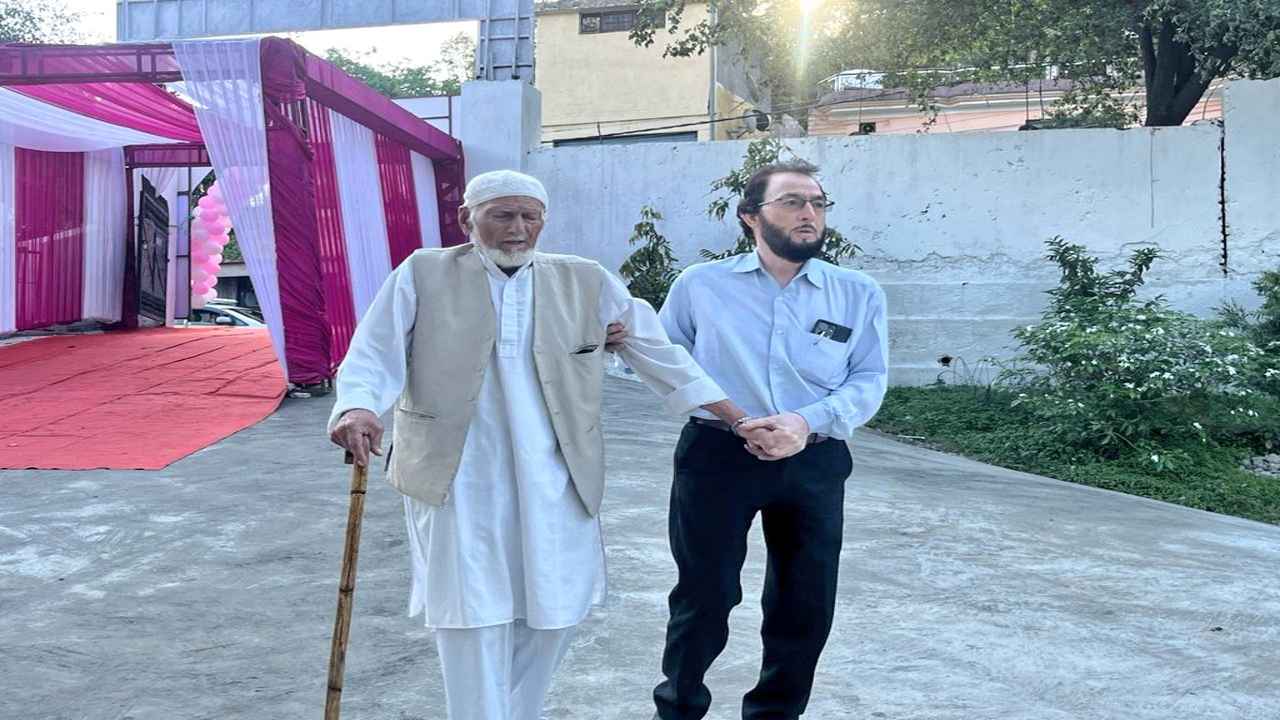
A 102-year-old man showed up at a Jammu polling place to cast his vote in the second phase of the Lok Sabha elections on Friday. Haji Karam Din arrived at the Reasi district polling place in the Jammu constituency with a walking stick in hand and a family member who assisted him with the pre-voting process.
Haji Karam Din, who is 102-year-old, showed his inked finger and posed for pictures outside the polling booth after casting his vote. He said voting at this polling place at this age makes him very happy. He has always cast his vote. Even at the age of 102, this experience is still ongoing, he said.
Reasi district is a part of the Jammu parliamentary constituency, and 22 candidates are up for vote with around 17.81 lakh eligible voters.
BJP’s sitting member Jugal Kishore Sharma is aiming for a third term in office following wins in the elections of 2014 and 2019. Former minister and Congress candidate Raman Bhalla is his main opponent.
Voting in the Jammu-Reasi Lok Sabha constituency began with eager voters showing up at the polling places. Some of them were wearing traditional Dogra attire.
In 2,416 polling places around the constituency, voting got underway at 7 a.m., and 10.39% of the total votes were cast by 9 a.m. In the 2019 Lok Sabha elections, Jammu recorded a 74% voter turnout.
Following the repeal of Article 370 and the division of the former state into two Union Territories five years ago, this is Jammu’s first significant election.
The Akhnoor segment received the highest percentage of votes, 14.24%, followed by Reasi (14.13%), Gulabgarh (13.53%), Shri Mata Vaishnodevi (12.71%), Marh (12.31%), Samba (8.56%), R S Pura Jammu South (8.17%), and Suchetgarh (5.67%), according to the officials. Ramgarh recorded the lowest voter participation of 1.53% so far.
Low attendance was observed in the border areas of the districts of Jammu and Samba till nine in the morning, according to poll data.
The officials said that big lines of voters were observed at several polling places throughout Jammu city. Voters were observed heading towards polling places early in the morning.
India News
Salman Khan house firing case: NIA interrogates arrested shooters Sagar Pal, Vicky Gupta for three hours
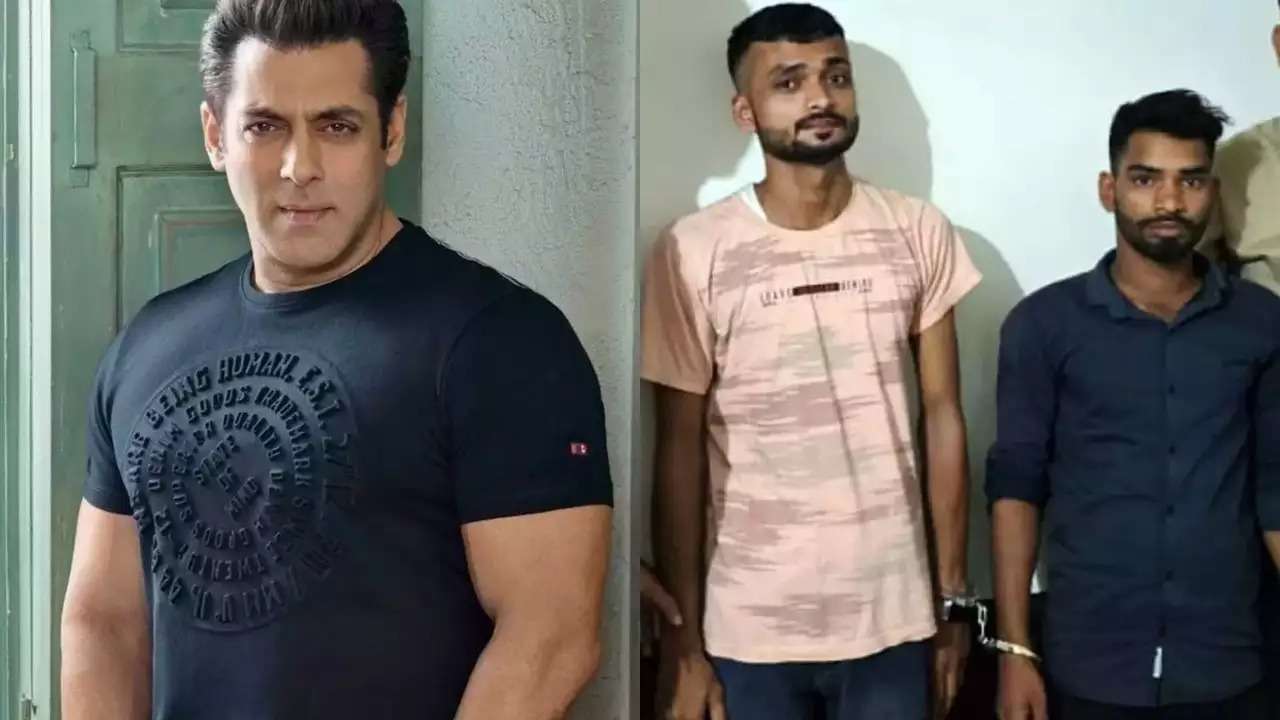
The investigation into the shocking firing incident that took place outside Salman Khan’s house on April 14 keeps bringing new updates with every passing day. In this case, Sagar Pal and Vicky Gupta, the two suspected shooters, have already been taken into custody.
The two shooters have reportedly been questioned by the National Investigation Agency (NIA), according to a new development. Every day that goes by, more information is revealed about the inquiry into the shocking firing incident that happened outside Salman Khan’s house on April 14. Sagar Pal and Vicky Gupta, the two accused shooters, are being held in custody after their first arrests.
It was recently discovered that the two shooters were questioned by the National Investigation Agency (NIA).
NIA has reportedly begun questioning Sagar Pal and Vicky Gupta, who were detained a few days ago for firing openly outside Salman Khan’s Galaxy Apartments in Mumbai, according to a recent update posted on their X (Twitter) account. NIA has interrogated shooters Vicky Gupta and Sagar Pal, arrested in the firing case, the tweet said.
According to the reports, two Punjabi residents were taken into custody by the Mumbai Crime Branch yesterday on suspicion of being involved in the recent shooting incident outside the house of Bollywood actor Salman Khan.
The two men, Sonu Subhash Chander and Anuj Thapan, provided guns to Sagar Pal and Vicky Gupta, the shooters, according to information released by the Mumbai Crime Branch. It was also reported that they had communication with the Bishnoi gang. For those who don’t know, hours after the incident, Anmol Bishnoi, the brother of gangster Lawrence Bishnoi, allegedly took credit for the firing in a Facebook post.
The shooters’ custody has been extended by Mumbai’s Esplanade Court until April 29.
Meanwhile, on the workfront Salman Khan was last seen in Tiger 3 alongside Katrina Kaif.
-
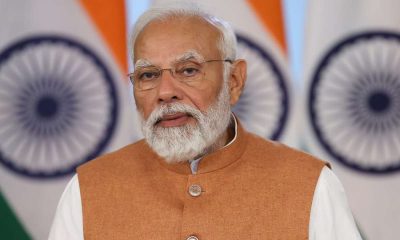
 2024 Lok Sabha Elections13 hours ago
2024 Lok Sabha Elections13 hours agoPM Modi calls for high voter turnout in second phase of Lok Sabha elections 2024, says your vote is your voice
-
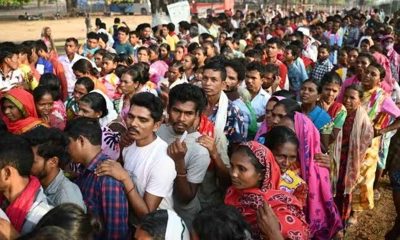
 2024 Lok Sabha Elections7 hours ago
2024 Lok Sabha Elections7 hours agoLok Sabha election 2024: Nearly 50% voter turnout recorded in second phase till 3 pm
-
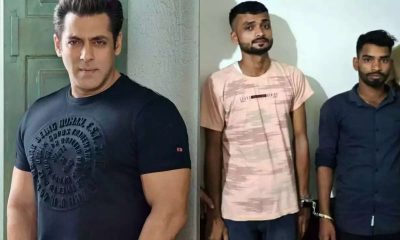
 India News12 hours ago
India News12 hours agoSalman Khan house firing case: NIA interrogates arrested shooters Sagar Pal, Vicky Gupta for three hours
-
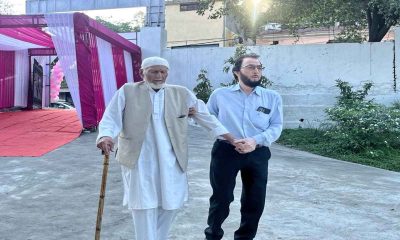
 2024 Lok Sabha Elections10 hours ago
2024 Lok Sabha Elections10 hours agoLok Sabha elections 2024: 102-year-old man walks to polling booth to cast his vote in Jammu
-
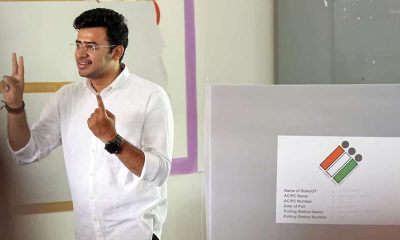
 2024 Lok Sabha Elections6 hours ago
2024 Lok Sabha Elections6 hours agoElection Commission books BJP MP Tejasvi Surya for seeking votes in the name of religion

